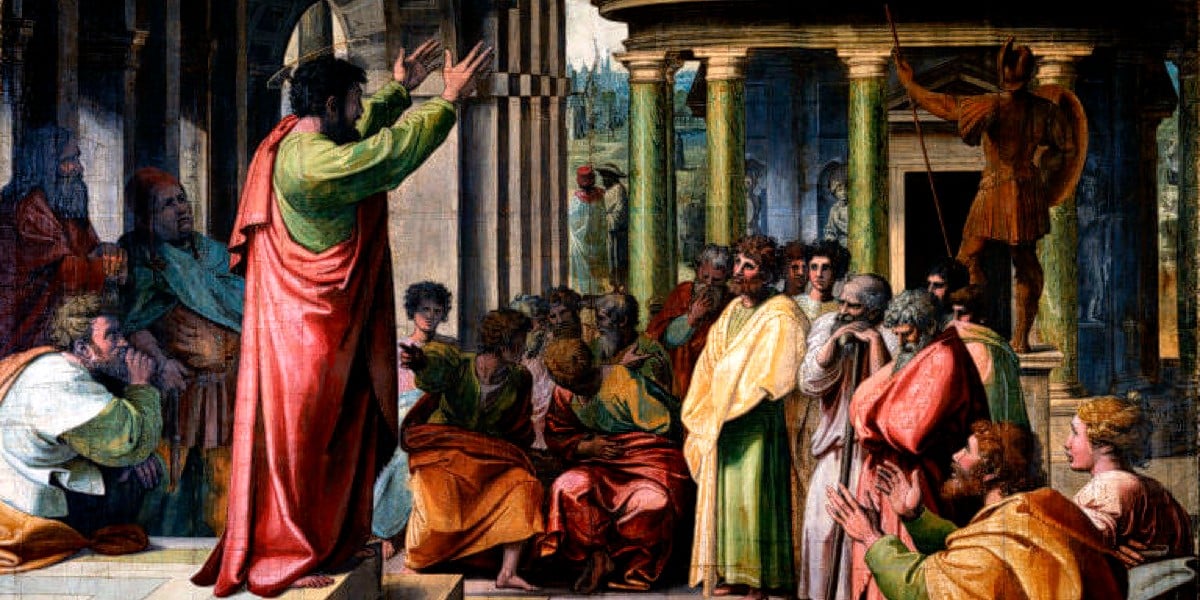Regina Caeli – Queen of Heaven, Rejoice!
The Regina Caeli, Latin for “Queen of Heaven,” is a hymn and prayer ...

Augustine explains that constant prayer does not mean non-stop church services or recitation of prayers, but a ceaseless desire of the heart for union with God in heaven. Here Augustine sounds remarkably like the Greek Fathers of the Eastern Church who teach the Jesus prayer, the prayer of the heart, in the spiritual classic called the Philokalia. To Pray always means constant desire for God. This actually is one of the three theological virtues, namely the virtue of hope.
I have roared out with the groaning of my heart. There is a secret groaning, which is not heard by man: yet if the thought of some strong desire has taken so strong hold of the heart, that the wound of the inner man finds expression in some uttered exclamation, everyone wonders why.
A man says to himself, “Perhaps this is the cause of his groaning? Perhaps this thing or that thing has happened to him?” But who can know the answer except he one before whose eyes and ears he groaned? So the psalmist says I roared our with the groaning of my heart because if men ever hear a man’s groanings they hear only the groaning of the flesh; the groans within the heart are silent.
And who observed and noticed the cause of his groaning? All my desire is in front of you. It cannot be before men because they cannot see the heart, but still the psalm says all my desire is in front of you. If your desire is laid before him then the Father, who sees in secret, will grant it to you.
For that very desire of your heart is your prayer; and if your desire continues uninterrupted, then so does your prayer. It was not in vain that the Apostle said Pray without ceasing. Can we be always bending the knee, prostrating the body, or lifting up our hands, that he says Pray without ceasing? If that is what prayer means then I say that we cannot do it without ceasing.
There is another inward kind of prayer without ceasing, which is the desire of the heart. Whatever activity you happen to be engaged in are doing, if you only long for that Sabbath then you do not cease to pray. If you do not want to pause in prayer then never pause in your longing.
Your continuous desire is your continuous prayer. If you cease to desire than you will have fallen silent in your prayer. Who are those who have fallen silent? Those of whom it is said Because iniquity will abound, the love of many will grow cold.
The freezing of love is the silence of the heart; the burning of love is the cry of the heart. If love continues then you are still lifting up your voice; if you are always lifting up your voice, you are always longing after something; if you are always longing, it is the Sabbath rest you are thinking of.
And all my desire is before Thee. How can we suppose that our desire is before him, but our very “groaning” is not before him? How can that be, since our desire itself finds its expression in “groaning”?
And so comes the line And my groaning is not hidden from you. From you indeed it is not hidden; but it is hidden from many men. The servant of God sometimes seems to be saying in humility, And my groaning is not hidden from you. Sometimes also he seems to smile. Is then that longing dead in his heart? If however there is the desire within, there is the “groaning” also. It does not always find its way to the ears of man; but it never ceases to sound in the ears of God.
FOR A FREE ADVENT “CHEAT SHEET” with many practical suggestions on how you and your family or study group can hope to make this the best Advent and Christmas Season ever, either sign up for free on our email list or confirm your existing subscription and then email us at [email protected] asking for your free copy. This document is not posted publicly on our website and is for our subscribers only.
St. Paul’s command to “pray always” in I Thessalonians 5:16 has been explained in various ways in the history of the Church. Here, in an excerpt on his commentary on the Psalms (In ps. 37, 13-14; CCL 38, 391-2) Saint Augustine explains that constant prayer consists of a ceaseless desire of the heart for union with God in heaven. This constitutes one of the three theological virtues, namely the virtue of hope. Since Advent is the season of Hope, these words of Augustine are read on Friday of the Third week in Advent as part of the Roman Office of Readings.
Banner/featured image Saint Paul delivering the Areopagus Sermon in Athens by Raphael. Public domain.
No Comments